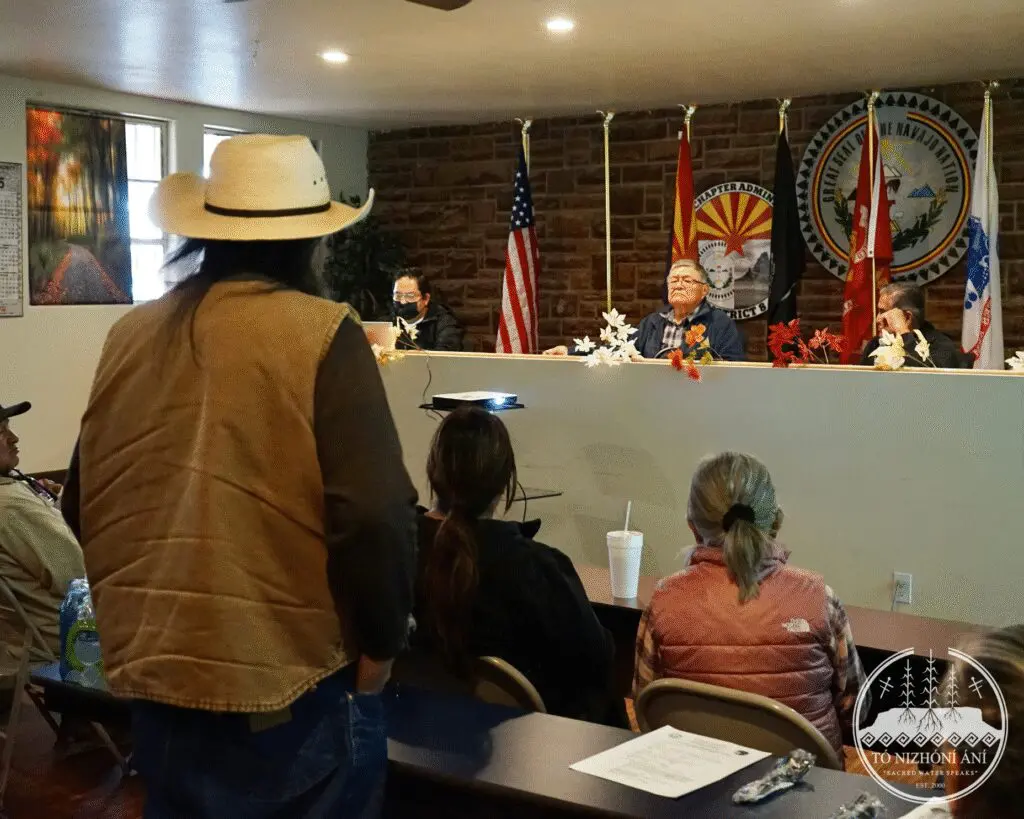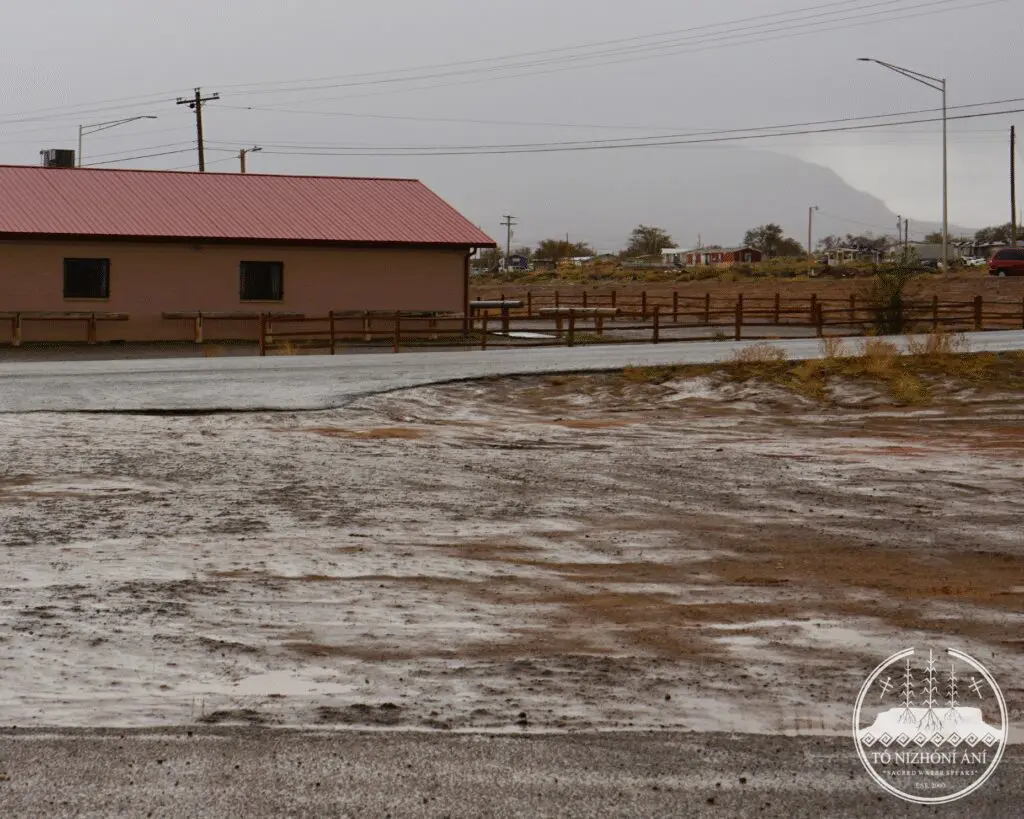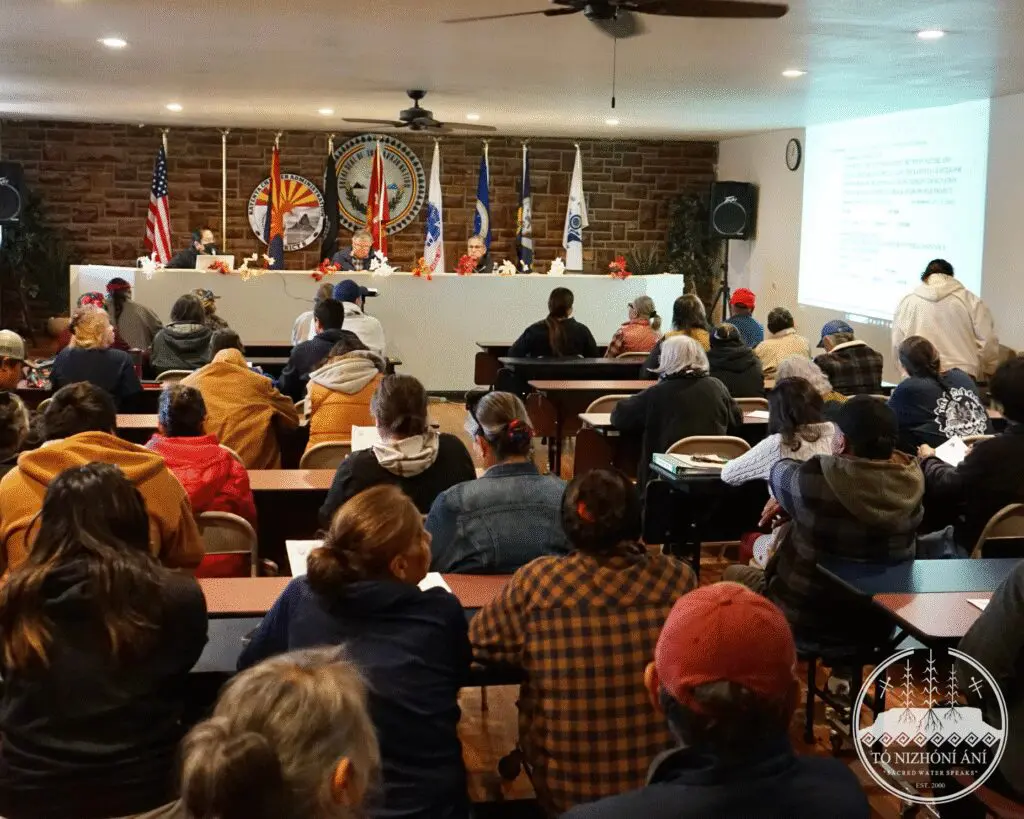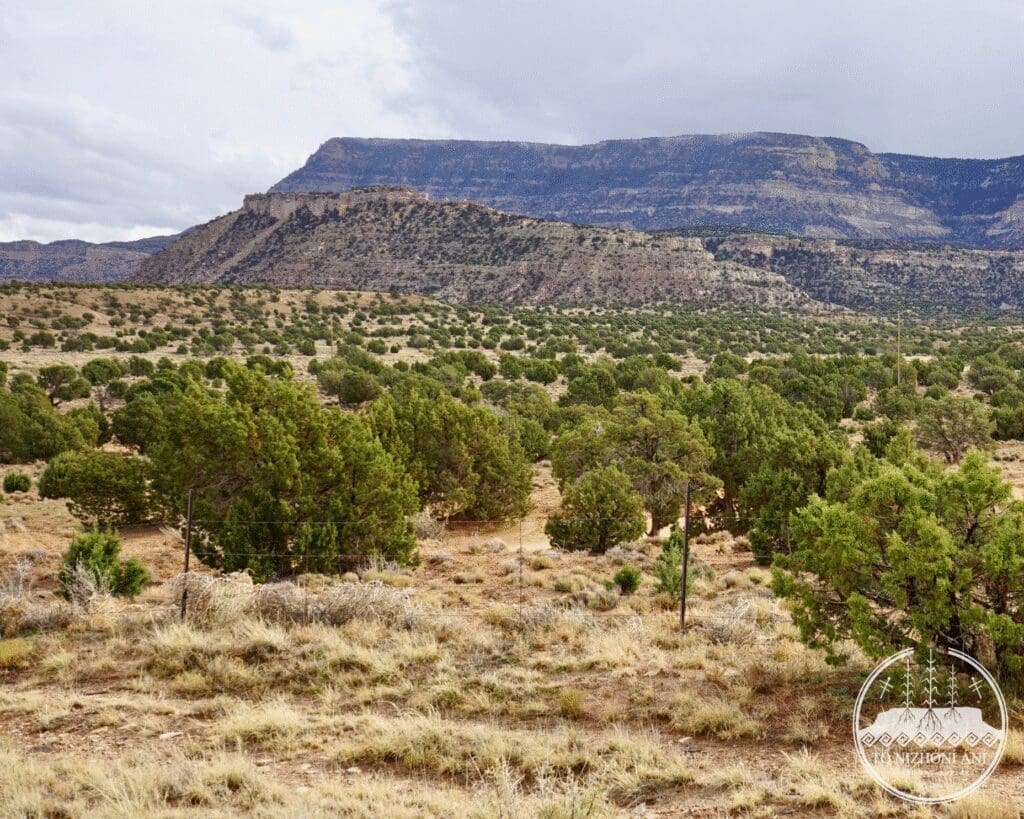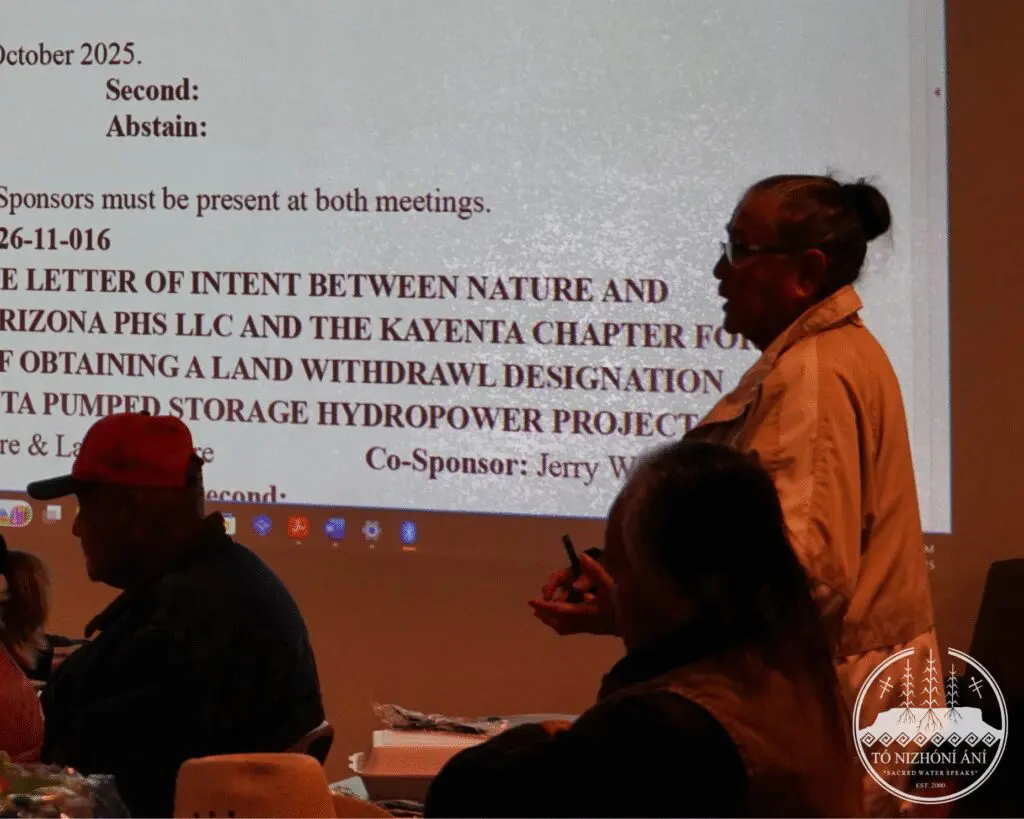For Immediate Release
November 20, 2025
Contact:
- Herb Yazzie, Coal-Lease Area Resident, 602-291-4474, hyazzie2003@yahoo.com
- Adrian Herder, Tó Nizhóní Ání, 928-380-3914, adrian@tonizhoniani.org
- Taylor McKinnon, Center for Biological Diversity, (801) 300- 2414, tmckinnon@biologicaldiversity.org
Hydropower Developers’ no-show at Kayenta Chapter meeting leaves Impacted Communities with more questions than answers
Chapter officials table hydropower resolution, ask for more community info sessions as FERC seeks to end a policy blocking permits on Tribal land, absent Tribal support.
KAYENTA, Ariz— On a cloudy, rainy Wednesday afternoon, the Kayenta Chapter held its monthly meeting where a resolution by Nature and People First was first on the agenda. Impacted community members from the coal-lease area on Black Mesa (Dził Yíjiin) filled the chapter house to voice concern about the resolution. But before discussions could begin, Chapter officials tabled the resolution because the developers didn’t show up.
Nature and People First (NPF) are developers who are pushing pumped storage hydropower (PSH) on the Navajo Nation, particularly in the Black Mesa region. Pumped storage pumps water uphill during low electricity prices and then releases it back downhill through generators when electricity prices are high, producing electricity and revenue. Pumped storage hydropower, which requires huge amounts of water, is different than hydrogen, which other developers wanted piped across the Nation.
Herb Yazzie, White Grass Resident in the coal-lease area, was one of many impacted community members who made the trek down the mesa on muddy roads to attend the Kayenta Chapter meeting. “When you table it, there’s no guarantee that we’re going to have a cross section of community at the next meeting,” said former Chef Justice of the Navajo Nation. “The community, the grazing permit holders up on Black Mesa oppose this proposal.” Herb Yazzie presented the Kayenta Chapter officials with a resolution from the coal-lease area residents on Black Mesa who oppose the Kayenta Pumped Storage Hydropower Project.
The Kayenta Chapter officials announced that they tabled the pumped storage hydropower resolution because they wanted more informational sessions from the developers. They expressed that NPF needed to present their project to the grazing permit holders first and then to the rest of the Kayenta Chapter community that don’t reside on Black Mesa.
“They are going to meet with grazing permit holders first and then they will have public meetings,” said Kayenta Chapter Official Dalton Singer in the Navajo language. “We will let them work on that, it will take time and after they complete those [informational sessions], they will bring their resolution back to the chapter.” One of the chapter officials mentioned that NPF met with the coal-lease area residents but has not met with the other chapter community members.
While Kayenta Chapter officials are working to ensure community consultation, the Federal Energy Regulatory Commission (FERC) has begun rulemaking to reverse a 2024 policy that prohibits preliminary hydropower permits on Tribal land when opposed by the Tribe on whose land the project would occur.
The policy was first enacted in what became known as the Black Mesa Decision, because of growing opposition from Diné communities, resulting in the denied Nature and People First’s preliminary permit applications for three Black Mesa Pumped Storage Projects (North, East and South).
Tó Nizhóní Ání (TNA) e-filed comments objecting to FERC’s proposed policy reversal along with the Center for Biological Diversity, American Rivers and more than a dozen tribes across the US. “For decades, coal mining on Black Mesa has not only extracted coal but also billions of gallons of groundwater to support the mining operation,” wrote Adrian Herder with Tó Nizhóní Ání. “Energy projects that propose to use large amounts of water for energy production should be vetted diligently.” Water access and reliability is crucial for our communities on Black Mesa and the southwest region of the United States.
Tribal communities understand the resources and impacts by industry. Any project that proposes to use groundwater when it has been heavily impacted and in a state of recovery should not be considered for continued industry use.
###
Tó Nizhóní Ání, which translate as “Sacred Water Speaks,” is a Diné-led nonprofit organization established in 2001 from the Black Mesa region. Tó Nizhóní Ání is rooted in water protection and works to bring power back to our Diné communities impacted by coal while leading community transition away from fossil fuels. Tó bee iiná. Water is life.
